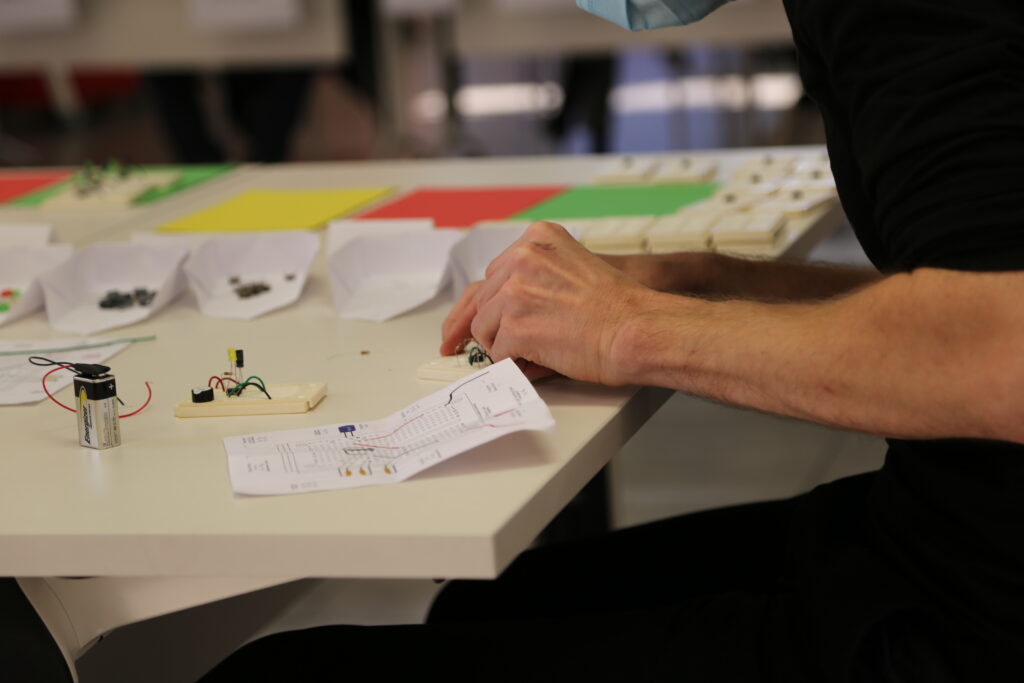Intrapreneurship in Family Businesses
JULY 5, 2024
Guatemala has a rich culture of family businesses passed down through the generations. This presents a unique opportunity for entrepreneurs looking to innovate within the family business. With access to more resources, freedom for experimentation, and the mentorship of experienced family members, intrapreneurship is an attractive option for those whose families own businesses.
The Advantages of Intrapreneurship in a Family Business
One of the biggest advantages of starting a business within a family business is the abundance of resources available from day one, compared to bootstrapping. When you launch a venture within the family business, you can utilize resources such as financing, human resources, or software such as ERPs, which would be otherwise unaffordable when starting from scratch.
Recently, I had a conversation with Marcelo Ramazzini, Acton Alumni ’22, who shared how he started his shoe company, Matisse, leveraging resources from the family business, such as storage facilities.
Today, Marcelo is working towards separating Matisse’s resources from the family company, but initially, not having to pay for storage was a huge advantage. This allowed him to lower the number of units needed to be sold to break even, as he didn’t have that fixed cost. Generally, using family business resources can help reduce fixed costs, allowing more time to focus on maintaining variable expenses.
Another advantage of starting a business within a family business is access to experienced mentors. Knowledge and experience are expensive to hire, but having seasoned professionals within reach is an incredible advantage. Personally, I have started several companies with my family, and having them as mentors has been a game-changer. They possess a level of experience that would otherwise be unattainable for me.
Additionally, access to industry-specific knowledge is a significant benefit. Starting a venture within a family company provides access to valuable firsthand data and industry experience. It becomes easier to identify industry bottlenecks that can be resolved from within a company that has years of experience. Identifying a real problem for clients is the key to starting a successful business, and intrapreneurship provides a great way to find and solve such problems. You can operate swiftly and nimbly, avoiding the red tape that often hampers larger companies, while still tapping into their experience, knowledge, and resources.
Moreover, family businesses often have established networks that can be leveraged for the new venture. These networks include suppliers, distributors, and even customer bases that have been built over the years. This network can provide a ready-made market for the new venture, significantly reducing the time and effort needed to establish credibility and market presence.
The Disadvantages of Intrapreneurship in a Family Business
While intrapreneurship in a family business has many advantages, it also comes with its own set of challenges. Firstly, working with family can be difficult. Family dynamics can complicate professional relationships and decision-making processes. It’s not uncommon for personal issues to spill over into business operations, causing tension and conflict.
Secondly, there is the pressure of using family resources, which are likely to be less tolerant of risk compared to venture capital funds. This can add stress and limit your risk-taking ability. The fear of losing family money can be a significant psychological burden, potentially stifling innovation and bold decision-making.
Additionally, you may face resistance from other employees within the company, who might view the intrapreneurship as competition or a threat to their roles. This can create an environment of internal politics and resistance to change, making it a challenge to gain the support needed for the new venture to succeed.
There is also the potential for a lack of formal processes and structures for innovation within family businesses. Many family businesses operate with a more informal approach, which can be both a strength and a weakness. While it allows for flexibility and quick decision-making, it can also lead to a lack of clear guidelines and accountability, making it difficult to manage and measure the success of the intrapreneurial venture.
Furthermore, the existing business model and operations of the family business may not always align with the needs and goals of the new venture. This misalignment can lead to conflicts of interest and strategic direction, requiring careful navigation and negotiation.
Every family and company is unique, so it’s essential to evaluate whether intrapreneurship makes sense for you and your family business. Consider the dynamics, the potential for conflict, and the overall readiness of the family to support such ventures. It’s crucial to have open and honest discussions with all stakeholders to ensure that everyone is on the same page and committed to the success of the new venture.
Balancing Tradition and Innovation
Balancing tradition and innovation is a delicate act in family businesses. On the one hand, there is a legacy and established way of doing things that have proven successful over the years. On the other, there is a need to innovate and adapt to changing market conditions and customer demands.
One strategy to achieve this balance is to create a separate but connected entity for the new venture. This allows the new business to operate with the agility and flexibility of a start-up while still benefiting from the support and resources of the parent company. It also helps to preserve the core business’s stability and operations, ensuring that the new venture does not disrupt or cannibalize existing revenue streams.
Creating a culture of innovation within the family business is also essential. This involves fostering an environment where new ideas are encouraged, and calculated risks are taken. It requires a shift in mindset from maintaining the status quo to continuously seeking improvement and growth. Encouraging cross-generational collaboration and leveraging the diverse perspectives within the family can also drive innovation.
At Acton we focus on the importance of industry knowledge, the capacity to operate a business, and the ability to raise money—all of which are critical for the success of an intrapreneurial venture.
Intrapreneurship in family businesses presents both significant opportunities and challenges. By leveraging existing resources, industry knowledge, and mentorship, entrepreneurs can create successful new ventures within the family business. However, it’s essential to navigate the unique dynamics and potential conflicts that come with working closely with family.
Evaluating the readiness of the family business for intrapreneurship, fostering a culture of innovation, and balancing tradition with new ideas are crucial for success. With the right approach and support, intrapreneurship can be a powerful driver of growth and innovation in family businesses.
Acton MBA provides the education and tools needed to succeed in this endeavor, helping entrepreneurs turn their family business into a platform for innovation and growth. If you have the opportunity to pursue intrapreneurship within your family business, don’t sleep on it—the potential rewards are immense.

By: Jose Muñoz










